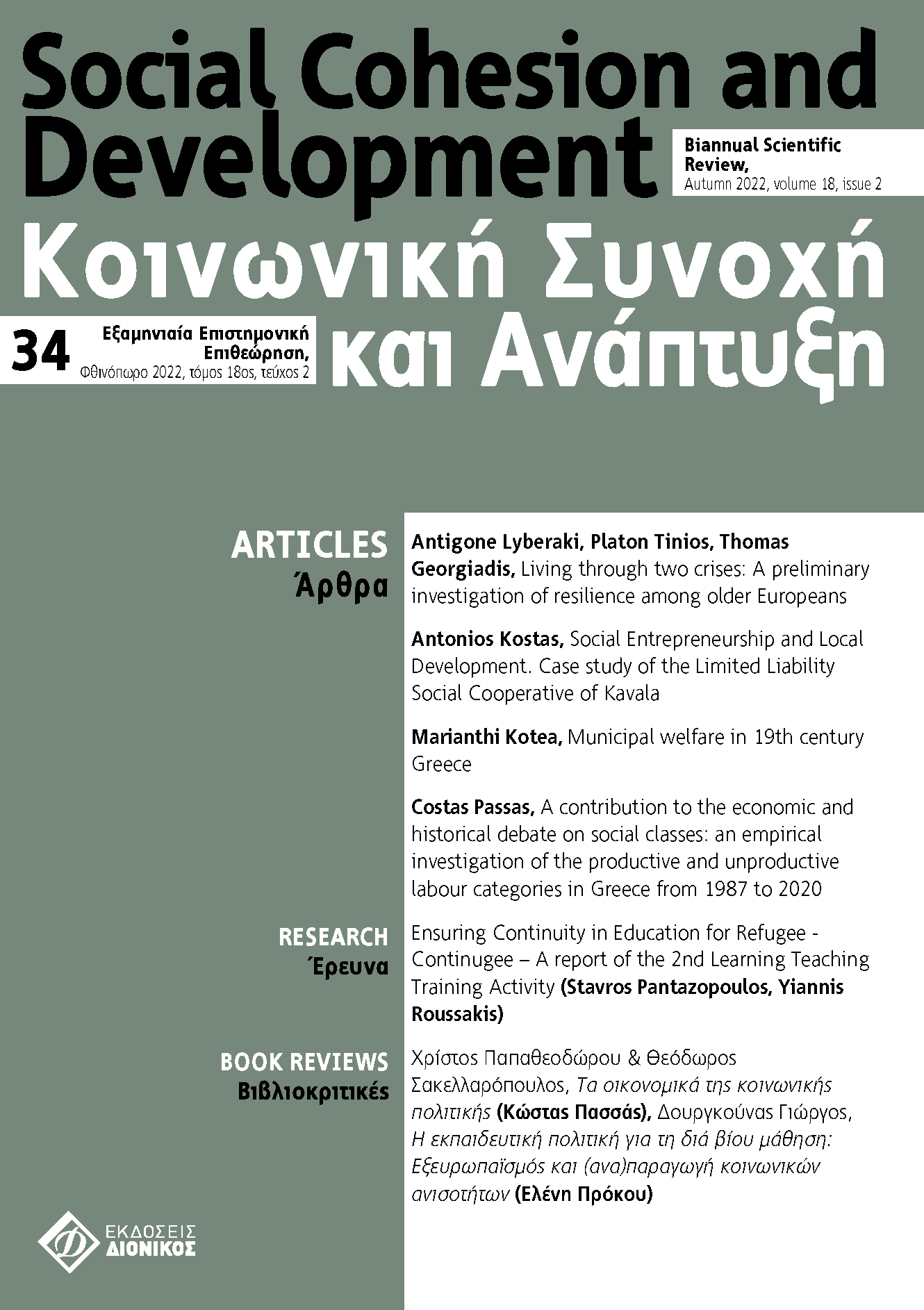Municipal Welfare in 19th century Greece

Abstract
Although during the 19th century the Greek
state did not organize a social policy, it assigned
social welfare to the municipalities,
which were responsible for the primary schools
and the charitable institutions in their district.
However, most municipalities failed to fulfill
their social role. This article refers to the legislation
on the municipal welfare policy, the concept
of a welfare city, and the use of the term
“municipal” (demofeles; δημωφελής) instead
of “public” (koinofeles; κοινωφελής) regarding
the benefits of municipal projects. Also, it presents
the objectives of municipal social policy
and the reasons why most municipalities failed
to provide welfare services.
Article Details
- How to Cite
-
Kotea, M. (2024). Municipal Welfare in 19th century Greece. Social Cohesion and Development, 17(2), 135–148. https://doi.org/10.12681/scad.32249 (Original work published September 1, 2022)
- Section
- Articles

This work is licensed under a Creative Commons Attribution-NonCommercial-ShareAlike 4.0 International License.
Authors who publish with this journal agree to the following terms:
- Authors retain copyright and grant the journal right of first publication with the work simultaneously licensed under a Creative Commons Attribution Non-Commercial License that allows others to share the work with an acknowledgement of the work's authorship and initial publication in this journal.
- Authors are able to enter into separate, additional contractual arrangements for the non-exclusive distribution of the journal's published version of the work (e.g. post it to an institutional repository or publish it in a book), with an acknowledgement of its initial publication in this journal.
- Authors are permitted and encouraged to post their work online (preferably in institutional repositories or on their website) prior to and during the submission process, as it can lead to productive exchanges, as well as earlier and greater citation of published work (See The Effect of Open Access).


